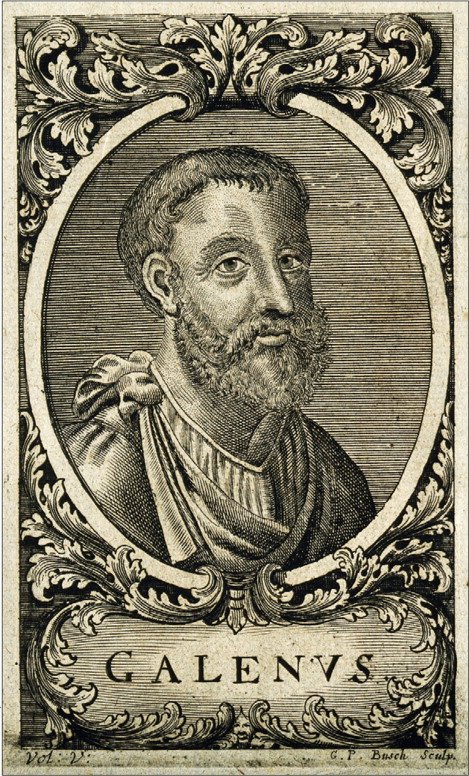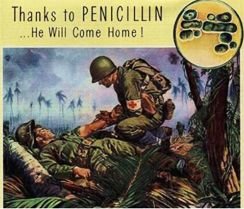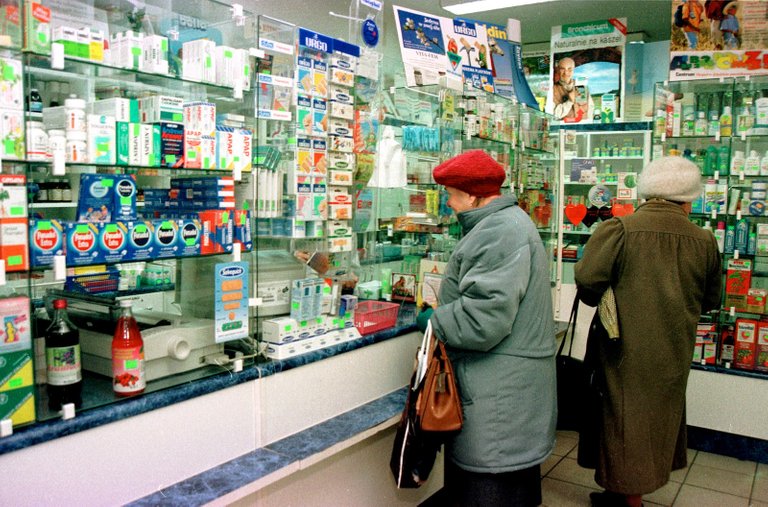
Pharmacy- it is a group of sciences contain knowledge about drugs. The origin of this word is from Greek, phármakon means magic remedy. In early Egypt translation ph-ar-maki means safety. Besides sciences strictly connected with medicines issues, pharmacy contain many related domains such environment, toxicology, bromatology (science about food), biotechnology, hygiene, botany and recently marketing also. All these domains cooperate and connect with pharmacy . Together they make a comprehensive field of medical knowledge.
Pharmacy consists largely of work in drugstore. Medicines are keeping and dispensed in the drugstore. Also there are made medicines on the basis of medical prescriptions. Other important thing in pharmacy is industrial production of medicines (synthetic, natural), which deals with the improvement of production technology, inventing new substances and controlling processes.

Pharmacy and medicine come from one source. In the era of the primitive community, women dealt with treatment and preparation of medicines. Later the witchdoctors appeared. In the age of slavery, in the era of the so-called great cultures (Sumerian, Babylonian, ancient India, China and Egypt) priests dealt with health problems. The first notes about using of medicines (mainly Plant) come from these times, in Sumerian city Nippur found prescription patterns on the plates (about 3000 years bC), there is a description of medicines in Chinese herbal medicine (3000 years bC), similary in Hammurabi’s codex, Indian Weds (1500 years bC), Egyptian papyri: Ebers (about 1550 years bC) and Smitha (1350 years bC).
The priests have lost their monopoly on medicine and treatment in ancient Greece and Rome. Began to appear groups of people with special interests-Celsus (Roman scholar interested in medicine) mention about pharmacies- students of the Alexandria school. In Rome (turn of the I century bC and I century aC) the sales of drugs were dealt with by peddlers and merchants selling them in stalls in designated areas of the city. Precursors of medieval pharmacists were people preparing certain drugs and cutters and trash of herbs and powders. For them Manthias wrote his first work about composing medicines (about 270 year bC).

As a father of pharmacy, the Roman doctor and pharmacist Claudius Galen is widely recognized. In 2nd century, he build comprehensive theory of the medicine, introduced a number of new forms of medicines, e.g. powders, extracts and tinctures. In the early Middle Ages, the first pharmacies were established and then the profession of doctor and pharmacist was separated. Exactly in 1231, based on the edict of Emperor Frederick II, the apothecary's profession was created. This edict determined the scope of activities and duties of the pharmacists, regulated the legal issue of pharmacies, their opening, inspection and introduced the use of medicines guide for the preparation of medicines.

In 1498, the first pharmacopoeia (the pharmacy code, official list of medicines and raw materials authorized on the market) was published in Florence. The development of natural sciences has led to creation of the first pharmaceutical manufactures. Faculty of pharmacy appeared at the universities (Padua 1545) and then higher schools (first 1777 in Paris Collcge de Pharmacie). At the beginning of the 19th century, the first professional organizations gathering pharmacists were established in France (Societe de Pharmacie 1803) and first scientific pharmaceutical journals (Bulletin de Pharmacie 1809). In 1865 in Brunswick, the 1st International Pharmaceutical Conference was held, and in 1912 the International Pharmaceutical Federation was convened at the Hague Congress. In 19th and in first half of 20th century the first important syntheses of drugs were made, eg quinine (for malaria), phenacetin (painkiller, acetaminophen analogue), acetylsalicylic acid (ant inflammatory, painkiller, popular Aspirin), and a number of biologically active compounds have been isolated from vegetable raw materials and their chemical structure has been determined.

In the 20th century, a huge revolution took place in the treatment of infectious diseases; the scope of the search for medicines was expanded; thousands of new medicines have been synthesized; also dealt with the control of their production and adverse reactions of the drugs. Modern pharmacy has initiated the introduction of first antibiotic - penicillin in medicine (1941). It was the beginning of an era of antibiotics. Many of new drugs have been synthesized during this period and enormous progress has been made in the treatment of infectious diseases.
The birth of the pharmaceutical industry in the world falls in the first half of 19th century. Previously, drug manufacturers were almost only in apothecary’s drugstore. At that time many apothecary’s labs change into pharmaceutical factories producing alkaloids and other chemical compounds. The major development of the pharmaceutical industry has initiated many chemical syntheses, including synthesis of salicylic acid (Kolbe 1859). In the 1930s thanks to advances in biochemistry by chemical synthesis, numerous hormones and vitamins were started, from the 1940s – antibiotics. Starting from the 1920s, pharmacological laboratories began to emerge in the pharmaceutical industry; many of them are currently leading the way in drug research. Currently, the pharmaceutical industry occupies an important place in the global industry. It is characterized by a rapid exchange of the drug range resulting from the progress made in medicine and pharmacy. Innovative companies produce new drugs protected by patents. In addition to them, there are factories that produce generic medicines that are equally effective from a therapeutic point of view as the original, but are cheaper.
Increasingly, there are fusions of large pharmaceutical concerns (eg Abbott from Mylan) or smaller companies are absorbed by giants (Actelion absorbed by Johnosson). Modern pharmacy is based on a pharmaceutical care system that is implemented in the most developed countries. Less and less medicines are being prepared in the drugstore. The pharmacist's role is to provide the drugstore with proper functioning, dispensation ready-made medicines on the basis of medical prescriptions, advising the patients with health problems.
This is just a brief description of the beautiful history of pharmacy in the world. Maybe in the future I will describe more detail of the most interesting moments. For now, thank You for reading the article.
If You have comments or questions, write them in the below.
Follow me https://steemit.com/@aga.mountain

Congratulations @aga.mountain! You have completed some achievement on Steemit and have been rewarded with new badge(s) :
Click on any badge to view your own Board of Honor on SteemitBoard.
For more information about SteemitBoard, click here
If you no longer want to receive notifications, reply to this comment with the word
STOPUpvoted your posts. Please do the same. Thank you for sharing.